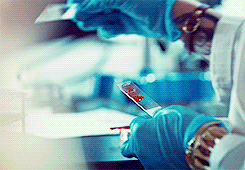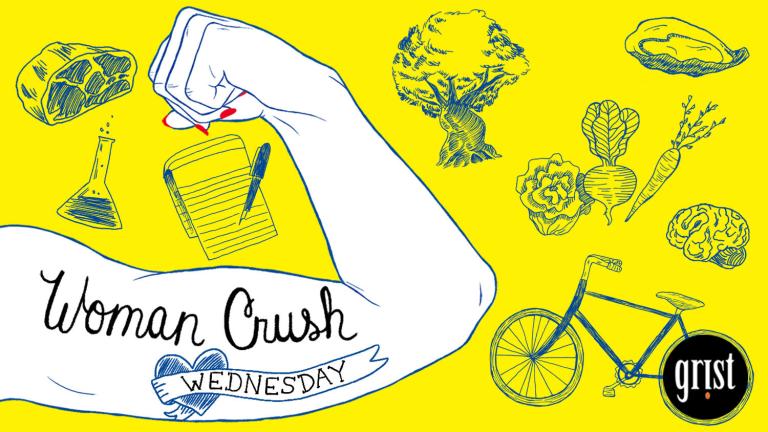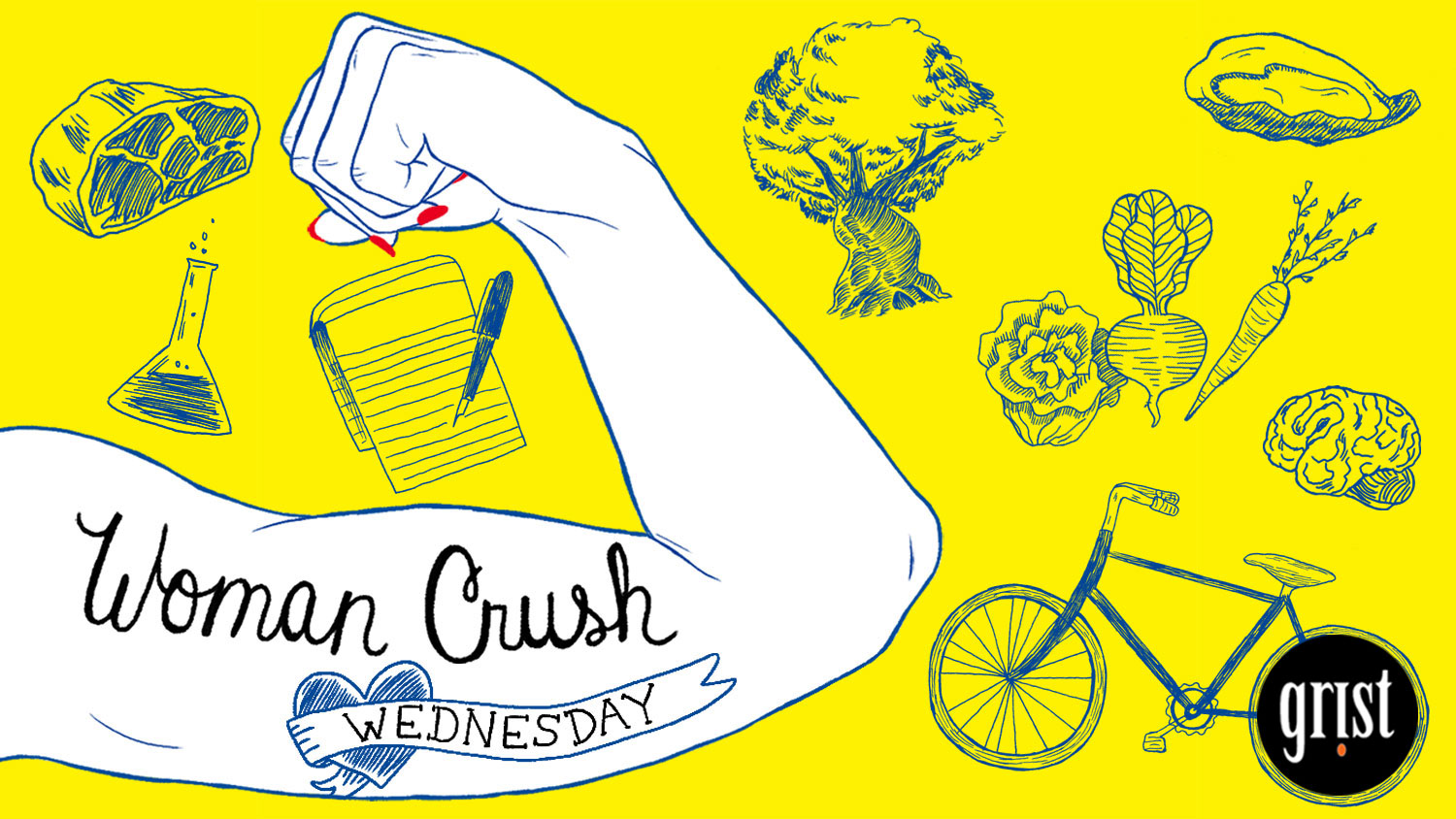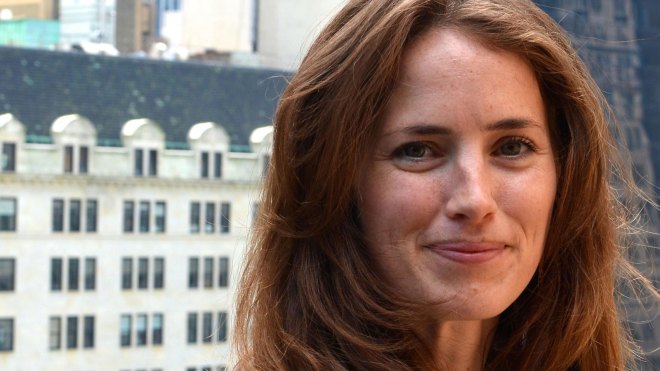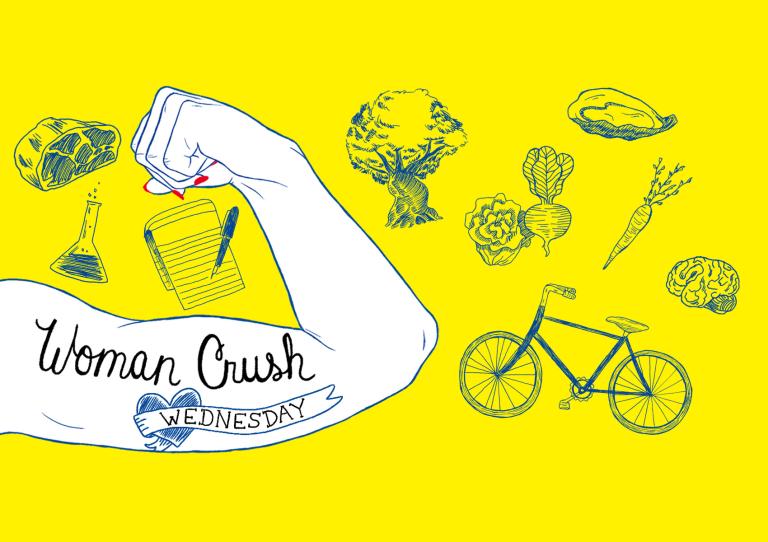Welcome to Woman Crush Wednesday! There’s no shortage of fascinating things to talk about at this weekend’s Independence Day barbecues: how to get drunk on children’s treats, the dangers of wearing tight jeans, and this guy, for example. But there’s no edgier or sexier conversation starter than the sick things that women are doing in science, tech, farming, and all the many green spheres that we love. (And yes — Grist Independence Day barbecues are wildly sexy and edgy.)
Here’s who we’ve been crushing on this week:
- Mary Iverson, the Seattle-based painter and public artist who explores environmental issues in her work — but in a way that’s subtle, beautiful, and actually cool. (Grist)
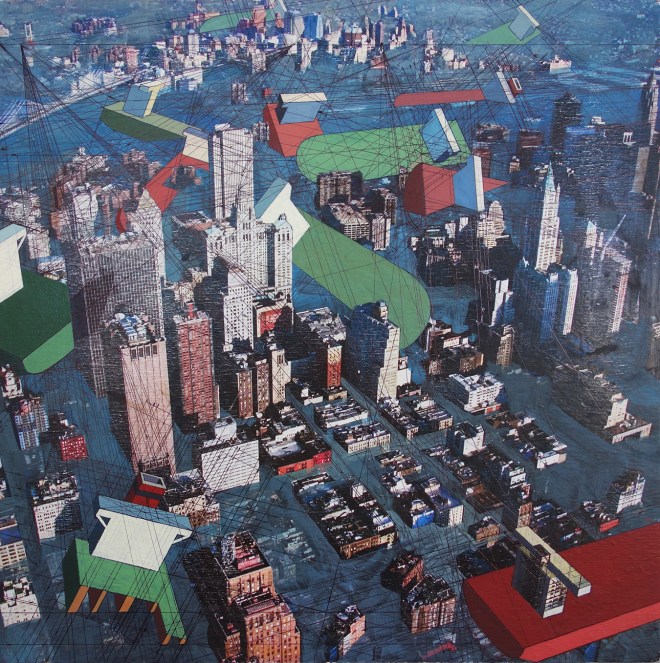
“Fleet,” 2014. Click to embiggen.Mary Iverson
- Meredith Nettles of Columbia University’s Lamont-Doherty Earth Observatory in New York, for her new research on the physics of glacial earthquakes. A glacial earthquake occurs when a chunk of ice — imagine an ice cube large enough to fill Central Park to the top of the Empire State Building — separates from a glacier in Greenland or Antarctica. (NPR)
- Participants in the Technovation World Pitch Challenge, a worldwide competition for girls and young women who code. This year’s contestants in San Francisco competed to design a mobile app that addresses local challenges — like water waste — and a chance to win $20,000 in seed funding. (Wall Street Journal)
- Jennifer Jacquet, author of Is Shame Necessary?: New Uses for an Old Tool. Jacquet spoke with Grist science editor Amelia Urry about the differences between guilt and shame, and why it’s way more productive to hold carbon-spewing companies accountable for their contributions to climate change than feel guilty about showing up to Whole Foods without any reusable bags in tow. (Grist)
- Jaime Lowe, for her poignant essay on her decades-long battle with bipolar disorder and her complicated relationship with lithium, the mood stabilizing mineral that could also help wean us off our dependency on fossil fuels. (The New York Times Magazine)
- Cosima Herter, science consultant for BBC America’s dystopian television show Orphan Black. Not only did she inspire the television show’s badass clone character Cosima Niehaus, Herter also offers the show’s creators key insight into the science, genetics, and synthetic biology that help shape its complex narrative. (Longreads)
Stay tuned for next week’s roundup!
